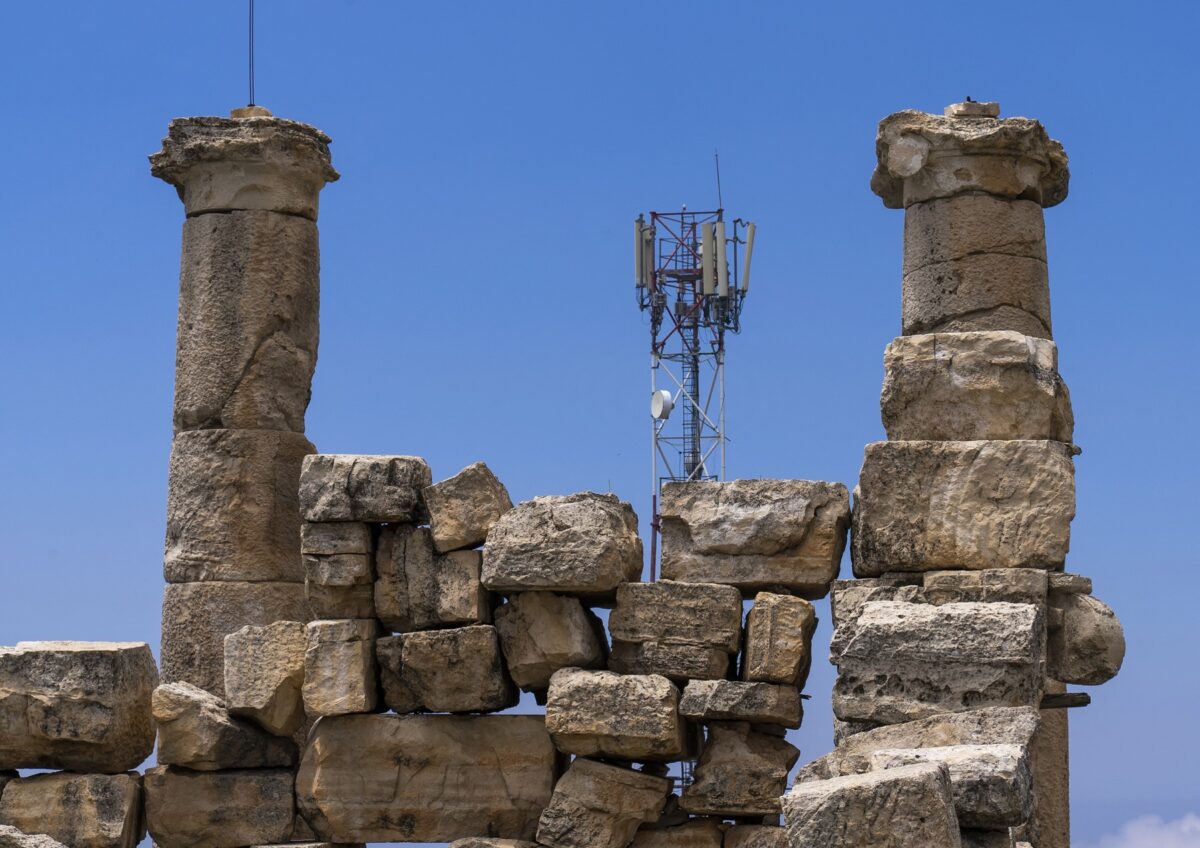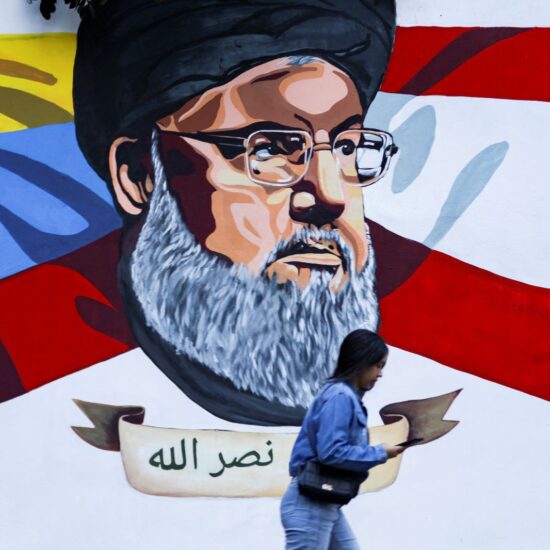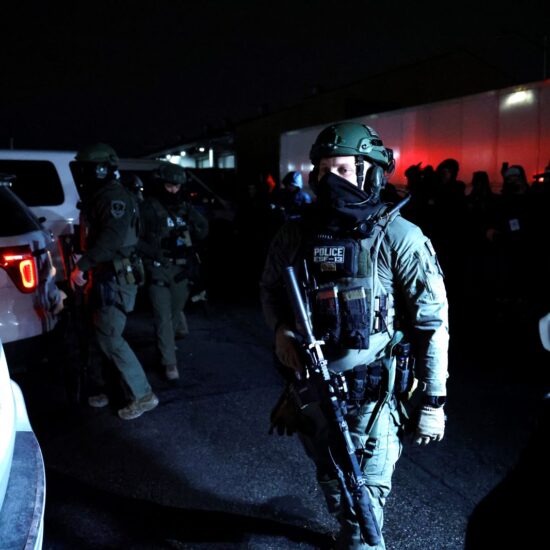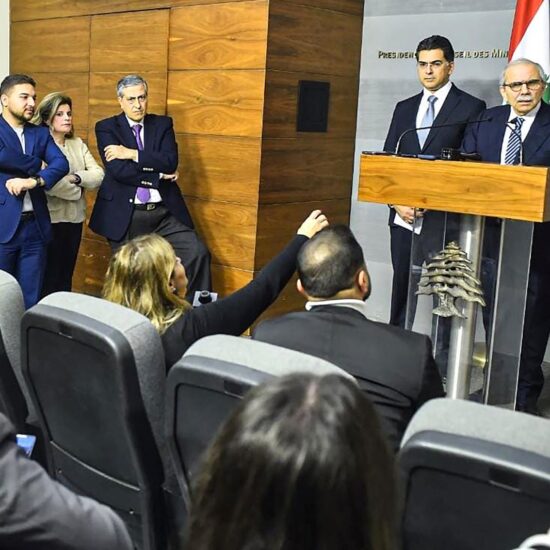
The Lebanese Government struggles to control internet illegal subscriptions and traffic.
At least 60% of internet service providers in Lebanon operate illegally without a license. Web access is widespread in Lebanon, with 76% of the population having access to it, while one-third of the world’s population lacks this privilege (according to 2022 figures). It’s estimated that around 600,000 people are subscribed to illegal networks.
In a final effort to regularize and increase transparency, the Ministry of Telecommunications proposed organizing the networks of all illegal distributors to connect them to the official Lebanese network. However, months later, it seems that this call was wishful thinking, as providers snubbed the minister.
Internet services in Lebanon are provided by Ogero, the public and exclusive internet provider, through licensed companies (107 in total, such as IDM, Inconet, etc.), or through mobile operators Touch and Alfa, which sell 3G and 4G services, or through unlicensed companies, commonly called neighborhood distributors. The latter account for 60% of the market. It should be noted that while the legal access providers go through Ogero, the illicit ones are not controlled by the official provider and have their own networks.
Ogero Under Pressure
In terms of numbers, the state-run Ogero authority sells internet services to around 100 legitimate and licensed distribution companies. These licensed companies legally distribute internet services to subscribers through state networks or private carriers, paying fees for their operations. However, they also sell part of their internet share to illegal networks, known as “neighborhood roosters.” The illegal networks sell internet services to hundreds of thousands of subscribers without paying any fees to the Lebanese government.
According to a detailed report from the Audit Bureau on the telecommunications sector as of November 11, 2021, Ogero has 280,000 subscribers and uses 92 gigabits per second (Gbps) of international capacity to cover their internet usage. Licensed companies, serving 145,000 registered subscribers, consume 470 Gbps to provide services (although they only need 43 Gbps to cover their registered users), the report stated. This indicates that these companies are purchasing far more capacity than necessary, suggesting they are catering to illegal market demands for internet capacity.
Remarkably, 90% of these companies have unauthorized networks. The report also notes that 36 out of 96 companies hold 80% of the leased capacities from the government.
This situation is largely attributed to Decree 956/2017, which offered discounts of up to 40% on international digital line rental fees for internet service providers leasing large capacities, enabling them to control the market and eliminate smaller competitors.
This reality is not new to Ogero, which faces challenges in service provision and retaining subscribers. Despite precise knowledge of the excess internet capacities and unregistered subscribers among companies, the Ministry of Telecommunications has not taken significant action to address these issues. This either suggests collusion between the ministry and these companies or the ministry’s inability to enforce the law despite having various options available. Experts suggest that most of these providers are protected by political influences.
Ogero itself disclosed an increase of 157,889 unregistered subscribers from companies within the first two months of 2022, compared to a decrease of 126 registered subscribers. Notably, Ogero’s letter included names of several licensed companies whose sole function appears to be selling internet to unlicensed networks, without having any legitimate subscribers themselves. This raises questions about how these companies were licensed in the first place and how they continue to operate in the market.
Reforms proposed by the state council included reducing internet capacities allocated to private companies based on the number of registered subscribers only and requiring private companies to report actual subscriber numbers according to Ogero’s estimates.
Converting illegally established companies into legitimate ones by allowing them to declare themselves, apply for network investment, report subscriber numbers, and pay associated fees might help fight illicit traffic.
However, none of these proposals were accepted, seemingly due to pressure from companies. Instead, Cabinet Decree No. 9458, ratified on May 20, 2022, addressed the situation of illegal networks, strengthening the authority of certain influential companies in the sector. This decree did not impose penalties on these companies but rather allowed them to invest in their established networks without licenses, outlining revenue-sharing arrangements that favor these private companies.
Regularize Illicit Providers!!!
A government plan is outlined in Decree 9458. However, it reassured citizens: “The network will not be disconnected. In fact, cutting the cables and depriving citizens of internet access is not a viable solution.”
Illegal operators of internet networks will be allowed to sign a contract with the State to maintain their network once it has been transferred to the State. The Minister of Telecommunications stressed: “We allowed these distributors to continue operating by contracting internet services directly from the ministry through Ogero for a three-year period. The agreement is a maintenance contract stating that the network belongs to the State, and maintenance falls on them. From now on, the distributor must provide the Telecom Ministry with maps of their distribution network so it can be connected to the national one.”
Consequently, the ministry will charge LP 550,000 for each unauthorized subscription, with maintenance operations handled by the “neighborhood roosters” in exchange for a portion of the revenue. So far, not all legitimate distribution companies have disclosed information about the unauthorized “neighborhood roosters” they supply with internet services. Only a few of these illegal networks have applied for authorization from the ministry.
Based on this, owners of these networks, estimated at 2,000 networks, have started organizing themselves through an unofficial gathering called the “Confrontation of Al-Corm Decree.” This gathering includes owners of 400 networks who are attempting to engage with stakeholders and officials to explain their perspective. The legal community has learned that they will meet with the Minister of Telecommunications next Wednesday, although they do not have high hopes of convincing him to deviate from his project.
These network owners object to being treated as criminals and insist that network ownership should belong to the owner. If the ministry aims to regulate the sector, they are willing to obtain a license under any legal conditions. One network owner adds, “It is unacceptable for us to hand over our networks to other companies. We don’t oppose ISP companies investing in our networks, but without taking ownership away from us.” The source emphasizes, “If it weren’t for the internet distribution companies, we wouldn’t have been able to operate.” Therefore, before holding them accountable, those who violated licensing conditions should be held accountable, not those who were not given the opportunity to obtain a license. The mechanism for obtaining internet from a legitimate distribution company involves a special program that gives the distributor access, where each distributor has a page with subscriber information and monthly payments are added based on the number of subscribers. The cost per subscriber ranges from $20 to $30, depending on the chosen speed.
The most notable point is that unlicensed networks, until companies invest in them, will be prohibited from adding any customers. However, DSP companies will be able to increase subscriptions on the unlicensed network if they have not extended their legal network in the concerned area, potentially increasing their subscribers. This indicates that regulating the unlicensed network will not necessarily reduce the number of subscribers on it, but may even increase them. This is connected to the seriousness and ability of companies to expand their legal networks, with only a few capable of funding these expansions, leading to their dominance in the sector.
The worst part is that the ministry’s proposed mechanism will not generate revenues of $60 million annually as advertised by the Minister of Telecommunications. Initial calculations suggest a maximum of $15 million. If the state earns 550,000 LP per subscriber monthly, paying 330,000 LP for network maintenance to the network owner and 10% (55,000 LP) to the DSP or Ogero, the remaining amount will be 170,000 LP monthly or 2 million LP annually. Assuming there are 700,000 unauthorized subscribers, the state will earn 1,428 billion LP, equivalent to less than $16 million annually. If another mechanism were applied, such as legalizing unlawfully established networks and transforming them into ISP companies, as done previously, the state could have earned the full 550,000 LP per subscriber without burdening the subscriber, resulting in more than triple the amount collected.
Maan Barazy is an economist and founder and president of the National Council of Entrepreneurship and Innovation. He tweets @maanbarazy.
The views in this story reflect those of the author alone and do not necessarily reflect the beliefs of NOW.








